 Wisconsin Department of Health Services (DHS) health officials announced on May 18, 2016, a Wisconsin resident has a confirmed case of Zika virus infection. The individual who tested positive is a woman who recently traveled to Honduras, where Zika-infected mosquitoes are present. Testing was performed at the Wisconsin State Laboratory of Hygiene. As of May 18, 2016, there have been no locally-acquired cases of Zika virus infection in Wisconsin or in the continental United States.
Wisconsin Department of Health Services (DHS) health officials announced on May 18, 2016, a Wisconsin resident has a confirmed case of Zika virus infection. The individual who tested positive is a woman who recently traveled to Honduras, where Zika-infected mosquitoes are present. Testing was performed at the Wisconsin State Laboratory of Hygiene. As of May 18, 2016, there have been no locally-acquired cases of Zika virus infection in Wisconsin or in the continental United States.
Michele Smith Receives National Cytotechnology Award
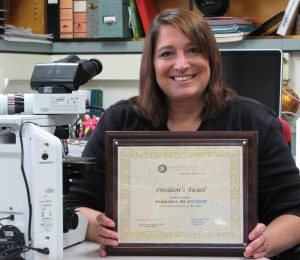
UW Cytotechnology Certificate Program Director Michele Smith holding her American Society for Cytotechnology President’s Award.
University of Wisconsin-Madison and WSLH Cytotechnology Certificate Program Director Michele Smith received the 2016 President’s Award from the American Society for Cytotechnology (ASCT) for both her exceptional service to ASCT and to the field of cytotechnology.
Michele has served as ASCT Program Chair for several years and became the 2016-2017 ASCT President at the April conference where she also received her award from outgoing ASCT President Catherine Smith (no relation).
The ASCT President’s Award was established in 1991 and is presented to an outstanding member of the ASCT by the president in recognition of outstanding service.
What’s an Emerging Infectious Disease?
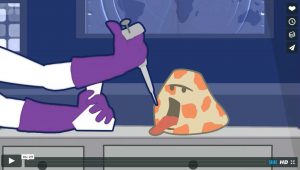 The Association of Public Health Laboratories (APHL) has produced this short animated video explaining emerging infectious diseases and the role of the public health laboratory in their detection.
The Association of Public Health Laboratories (APHL) has produced this short animated video explaining emerging infectious diseases and the role of the public health laboratory in their detection.
Baker Named Wynne Mateffy Professor to Research Peroxisomal Biogenesis Disorders
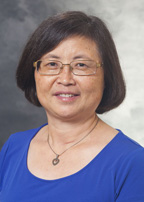
WSLH Newborn Screening Laboratory Co-Director Dr. Mei Baker has been promoted to full professor in the UW Department of Pediatrics and also was named the inaugural Wynne Mateffy Professor of Peroxisomal Disorders.
The Wynne Mateffy endowed professorship supports UW Department of Pediatrics faculty who conduct research on peroxisome biogenesis-related metabolic disorders. This endowed professorship was the result of a generous gift from the Wynne Mateffy Research Foundation with a match from John and Tashia Morgridge.
Dr. Baker is working with a PhD student to assess the carrier rate of Zellweger syndrome using publicly available whole exome sequencing data.
From the Wynne Mateffy Research Foundation website (http://wmrf.org) –
“Peroxisomal biogenesis disorders (PBDs)—also referred to as Zellweger spectrum disorder—is a genetic metabolic disorder affecting children. Those with the disease have upwards of 50 biochemical abnormalities. While the spectrum ranges, the prognosis is grim: anywhere from death within the first year to survival into early adulthood with severe special needs.
“Children living with the disease suffer from profound vision and hearing loss, seizures and significantly impaired cognition.
“Estimates vary, but the incidence of PBD is believed to be between 1 in 25,000 and 1 in 50,000.”
“It’s Still a Good Test” – Recreating 1880s water quality testing

A photo of a backyard well used in the video. Photo credit: Wisconsin Historical Society, WHS108018
A short documentary the Madison Water Utility created about their history won Best Government Access Program at the Midwest Media Fest.
WSLH Environmental Microbiology Director Dr. Sharon Long is featured in the video re-creating the experiment UW undergrad Magnus Swenson would have done in the 1880s to convince the people of Madison that the water they were drinking from their hand-dug backyard wells (sited sometimes just feet away from their family cess pools) was unsafe.
Watch the video — https://www.youtube.com/watch?v=xwu5FhwmTx4
Celebrate National Public Health Week
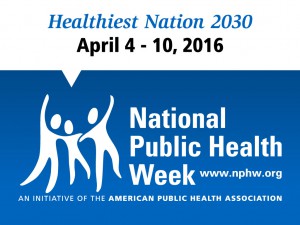 The first week in April the U.S. celebrates National Public Health Week. This year’s theme is Healthiest Nation 2030.
The first week in April the U.S. celebrates National Public Health Week. This year’s theme is Healthiest Nation 2030.
Since our founding 113 years ago at the University of Wisconsin, Wisconsin State Laboratory of Hygiene (WSLH) scientists have worked hard to ensure that generations of Wisconsinites have healthier lives and a safe and healthy environment in which to live, work and play.
- From the babies we help protect from severe health issues and even death through Newborn Screening
- To the children and adults those babies grow up to be, whose health status we monitor in Biochemical Genetics
- To the workers we help protect through the Occupational Health Lab, WisCon and OSHA Statistics
- To the people who rely on our testing in Environmental Health to ensure the water they drink and the air they breathe is safe
- To the women whose cervical cancer we try to prevent in Cytology and the cancer patients whose therapy we help improve in Clinical Genetics
- To the drivers we help protect through our OWI Toxicology testing
- To the millions of patients whose clinical laboratory tests we help ensure are correct via Proficiency Testing
- To the people who didn’t get sick because our Communicable Disease testing helped stop a disease outbreak.
WSLH scientists and staff are committed to continuing this legacy of public, environmental and occupational health laboratory practice and policy for generations to come.
Learn more: Return on Investment (ROI) of Public Health video from the American Public Health Association – https://www.youtube.com/watch?v=B5M9JefYxJI
Hoping “Once” Turns into “Many” — Supporting Women’s Health Care in Tanzania
For many of us, having a “once-in-a-lifetime” experience means just once in our lifetime. But Wisconsin State Laboratory of Hygiene (WSLH) Cytology Laboratory Manager Erin McCarthy hopes that the time she spent in Tanzania in January and February will happen again and again.
Erin spent a month in the East African country completing an internship with Empower Tanzania, an Iowa-based non-profit organization that works in partnership with rural Tanzanians to improve their quality of life. Staff and volunteers in Tanzania and the U.S. work with Tanzanians to address the underlying issues that hinder resiliency in rural areas, such as health care, education, agriculture practices, markets for products, and increasing water supply and quality.
Erin’s internship was part of her Masters of Public Health (MPH) program at Des Moines University. With her interest in both women’s health and global health, Empower Tanzania was a perfect fit. The organization emphasizes education, economic empowerment and health care, especially for women in rural communities.
Erin spent 4 weeks in the Kilimanjaro region of the country helping collect data in the Same (SA-may) district where she was headquartered, as well as 4 neighboring districts, to be able to analyze population health outcomes. Empower Tanzania hopes to use this data collection and analysis approach to prove the efficacy of their work and pursue more sustainable funding opportunities. They also hope to expand their programs to other areas of the country.
Erin traveled to the hospitals in each district as part of the data collection, as well as to different villages where Empower Tanzania staff had worked with residents. She continues to work with Empower Tanzania staff remotely from Wisconsin wrapping up projects.
“The people I met were fantastic and so welcoming,” she said. “I think I made life-long connections.”
Erin even learned a bit of Swahili in order to have rudimentary conversations with the people she met.
“I loved Tanzania – the people I met, the food I ate and the weather,” Erin exclaimed. “And then I came home to Wisconsin winter. I can’t wait to go back.”
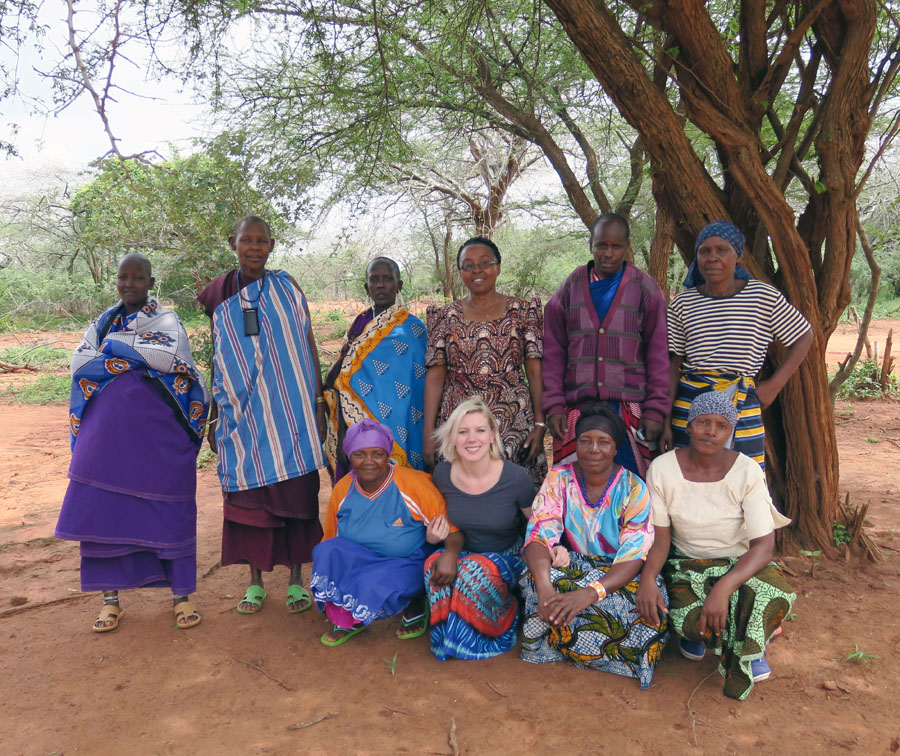
Erin (front row – 2nd from left) visits with midwives in Nadaruru, a village of the Masai tribe. The woman standing behind Erin is a staffer with Empower Tanzania. The man next to her (back row — 2nd from right) is the village’s Chief who, alarmed at the village’s high infant and maternal mortality rates, invited Empower Tanzania to teach midwifery to women in the village.
WSLH Staff Named TB Elimination Champions by CDC
Wisconsin State Laboratory of Hygiene (WSLH) mycobacteriology laboratory staff have been named TB Elimination Champions by the Centers for Disease Control and Prevention (CDC). The honor comes as health agencies commemorate World TB Day on March 24th with a goal of ending tuberculosis (TB) worldwide.
CDC developed the TB Elimination Champions program “… to recognize accomplishments and learn best practices from people who are making a significant contribution to preventing and controlling TB.”
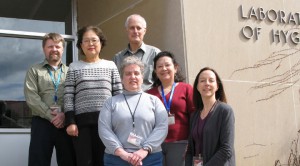
The WSLH mycobacteriology lab group: (front row) Julie Brockman; (middle row from left): Tim Monson, Youngmi Kim, Ana Guaracao, Julie Tans-Kersten; (back row) Dr. Dave Warshauer. Missing from the photo are Don Busalacchi, Ali Lopez and Audrey Prieve.
The WSLH mycobacteriology laboratory serves as a primary diagnostic facility and reference laboratory for clinicians and private clinical mycobacteriology laboratories throughout Wisconsin, and as a public health laboratory serving the Wisconsin Division of Public Health (WDPH) Tuberculosis (TB) program and Wisconsin local public health agencies.
The WSLH award highlighted the close collaborative working relationship of WSLH mycobacteriology lab and WDPH TB program staff, using the 2013 Sheboygan TB outbreak investigation and response as an example.
In addition to TB case response, WSLH mycobacteriology lab and WDPH TB program staff work together to provide statewide, multidisciplinary TB educational opportunities for laboratorians, nurse case managers, clinicians and infection control practitioners. The strong relationship developed over the years between WSLH and WDPH TB program staff is essential for quality TB laboratory services in support of TB treatment and control efforts in Wisconsin.
World TB Day is an annual event that commemorates the date in 1882 when Dr. Robert Koch announced his discovery of Mycobacterium tuberculosis, the bacillus that causes TB.

Surveillance of Wisconsin Antibacterial Susceptibility Patterns
Data submitted by members of the Wisconsin Clinical Laboratory Network (WCLN) helped paint a picture of antibiotic resistance patterns in Wisconsin. The research findings are described in the latest issue of the Wisconsin Medical Journal.
The WCLN is comprised of 130+ clinical and hospital laboratories and is facilitated by the Wisconsin State Laboratory of Hygiene.
Braving Winter to Help Babies
Usually in winter it’s Wisconsinites who head south for warmer weather. But in early February, it was two nurses from Puerto Rico’s newborn screening program who headed north to brave the cold and learn from the WSLH newborn screening staff.
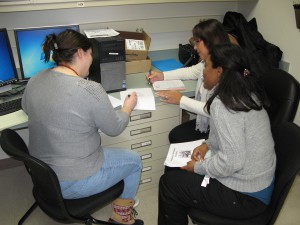
WSLH Chemist Marcy Rowe (left) reviews mass spec cutoff data for repeating and reporting testing with Ledith Resto Melendez (top right) and Zulley Peńaloza Medina.
Ledith Resto Melendez and Zulley Peńaloza Medina spent the first week of February learning about our newborn screening testing processes. Puerto Rico’s newborn screening program, which is affiliated with the University Pediatric Hospital in San Juan, received a NewSTEPS grant from the Association of Public Health Laboratories to implement Severe Combined Immunodeficiency (SCID) screening. They started testing for SCID in August 2015.
In 2008, Wisconsin became the first place in the world to routinely screen newborns for SCID. Babies with the disorder are born without a functioning immune system. Our newborn screening lab has served as a training center for many state and some international newborn screening programs that want to implement SCID testing. WSLH Newborn Screening Laboratory Co-Director Dr. Mei Baker has also traveled many miles consulting with labs on SCID testing implementation.
Even though Puerto Rico only began SCID testing months ago, Ledith and Zulley wanted to visit the WSLH NBS lab soon after implementation for quality assurance purposes.
“We want to review our processes with Wisconsin to make sure we are doing things well and see if there are any changes we need to make,” Ledith explained.
And since they were here, they decided to learn all they could about the testing processes for the other 43 disorders screened for in the WSLH NBS lab.
“We have had an opportunity to see every step for every test, from punching blood spots to data entry to testing to results reporting to follow-up,” Ledith said. “We’ve seen every piece of equipment and talked with all the staff.”
“The staff have been very helpful,” Zulley added.
The Puerto Rico newborn screening program screens about 34,000 babies annually for 29 disorders. About 20-25 babies a year will test positive for one of the disorders. There are about 30 staff members who work in the program, which combines testing, short and long-term follow-up activities and genetic counseling.
Ledith and Zulley hope this trip is just a first visit in what will become a long-term collaboration.
“The staff have been great and Mei is a wonderful teacher,” Ledith said. “The people here really love what they’re doing.”
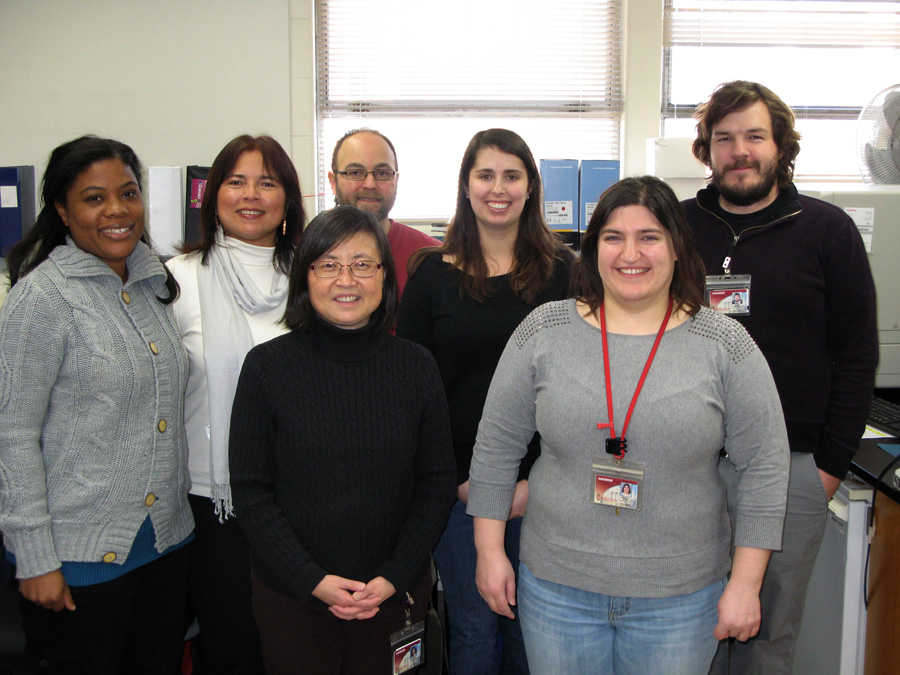
The Wisconsin SCID crew and their guests. (Front row from left) WSLH Newborn Screening Laboratory Co-Director Dr. Mei Baker and WSLH Chemist Marcy Rowe (Back row from left) Zulley Peńaloza Medina and Ledith Resto Melendez — both nurses with the Puerto Rico Newborn Screening Program – and WSLH Chemists Mike Cogley, Deb Statz and Sean Mochal